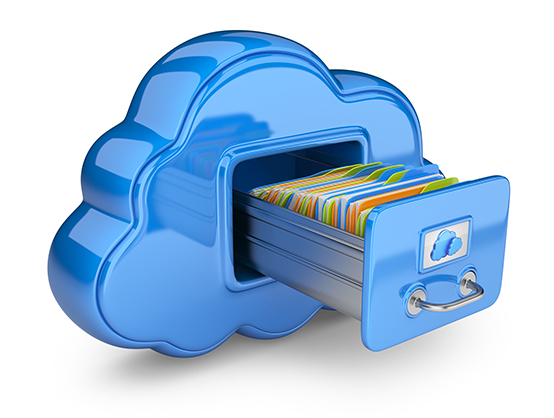Hard drives appear to be losing their relevance; the world is shifting to storing data on cloud to avoid the vulnerabilities that come with hard drives. And as time progresses, with increasing Internet speeds, cloud computing is becoming more reliable on both desktop and mobile devices and hence becoming ever more popular. Plus with belligerent competition, users are benefiting as companies work to make their products better than the rest and reducing prices.
Why Cloud Storage Is Better Than Hard Drive
Most computers generally use at least one service for cloud computing. Gmail, Yahoo Mail, and other E-mail services present are notable examples of cloud computing. The prime appeal of cloud services is the convenience it provides. If all data is stored on cloud, as its done with email, users will have access to it from any device they use and the only thing they’ll additionally need is an Internet connection.
Almost all users have used flash drives to move music or have copied music into their phones at some point in time. But here’s where the convenience factor sets in with the cloud storage; with all music stored in the cloud, users can access it directly from their phones instead of having to transfer music via USB cables. And all the while, the data on cloud is stored and secured. For those who think that cloud services should be given a chance, their next step is to choose one that serves their needs. Among the popular names are Dropbox, Google Drive, Microsoft’s OneDrive, and Apple Inc.’s iCloud. Each of these services are great while also have their own cons, hence, picking one can often turn out to be a rather difficult task especially if there isn’t enough information on hand.
But we can help in making it simple; it’s not about finding the best service, but instead about finding one that best serves a user’s needs. Following are detailed plus points, in terms of features, of each service.
PC Use
While a lot of users use the mobile app, some prefer a cloud storage option that’s almost effusively integrated with PC as it makes uploading of content a simpler task. While Dropbox is available on PC, iCloud, and OneDrive both outperform others in this division.
Microsoft have been determined to make users of Windows use its cloud storage, OneDrive, ever since the release of Windows 8.1; OneDrive is integrated within the OS. Plus, the Windows Explorer has also been integrated with OneDrive; it’s a storage tab to synchronize it with local storage. OneDrive storage has a subfolder that also appears as normal folders when looking for files. The smoothness of this process that includes files being locally stored provides convenience to users.
Moreover, similar to OneDrive, Apple’s iCloud is also deeply integrated into Mac OS X, but the ease of usage is not on the same level as Microsoft. This is because certain items such as photos and contacts are synced automatically with cloud. Hence in terms of PC use, OneDrive is a definite winner.
Ease of Access
All these services can be accessed on a browser on both mobile and desktop, but an app is always preferred instead of having to open it on a browser each time. While Google Drive, Dropbox, and Microsoft’s One Drive all have apps for PC and Mac both, Apple’s iCloud is only restricted to Mac and iDevices. Moreover, users who have the Linux operating system are only limited to Dropbox because none of the other services have an app for it.
While having the storage system on the computer is important, it is usually a smartphone that is with users all the time. Hence, the accessibility from smartphones holds an equal level of importance. All four cloud services are available on iOS and can be downloaded from the App Store (except iCloud, of course, which is integrated within the device). But again, on Android devices, users will not have the option of iCloud. So the loser, perhaps, in this category is iCloud, while Dropbox, keeping the Linux factor in mind, takes the prize.
Free Storage
Like everything else in the world, users want to be able to use things for free. Same is the case with cloud storage services. Google Drive and Microsoft’s OneDrive are two services that provide free storage to their users, so far. When registered to either of these services, both provide users with free 15GB storage, without asking for anything in return. That means users don’t need to send invites to the service to their Facebook friends or tweet about it on Twitter. A simple sign up will get users 15GB of storage, straight up. However, an option to invite friends for additional 1GB of storage is available, so users can always do so when need be.
Dropbox, the trend-setter in the case of cloud storage services, on the other hand, only offers its users 2GB of free storage upon registration. Dropbox too, however, has the option to receive more storage upon inviting friends but each friend will get users only 500mb.
Apple’s iCloud is a step ahead of Dropbox with its 5GB offering upon sign up, while additional storage needs to be paid for. Hence in the category of free storage, OneDrive and Google Drive take the lead.










